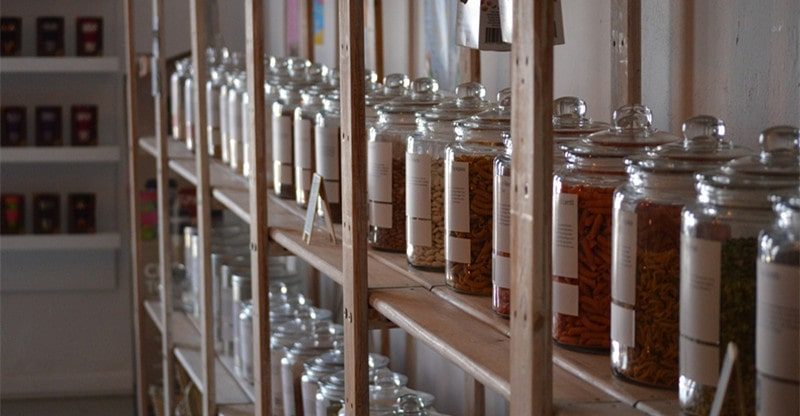Zero Waste 101
Think about the waste you create during a day: food wrappers, tissues, pieces of scrap paper, coffee cups, free swag you picked up at the office. All of these things pile up over a lifetime and cause the major trash problem we’re facing today.
The average American produces nearly five pounds of trash per day. Per day! Multiply that by 365 days per year and you’re left with about a ton of waste, a staggering amount of trash that you, yourself have produced. Then multiply that by the number of people in the country and things get really ugly.
If you’re interested in sustainable living, you’ve likely heard of “zero waste,” — but perhaps you’re skeptical. How could anyone really produce zero waste, and why would you want to try? Let’s take a look at what zero waste is, why it’s important, and how to work toward it.
What Is Zero Waste?
Zero waste is the philosophy and practice of working to eliminate the waste we produce until we produce none (or as close to none as possible) at all. By reducing what we buy, reusing items when possible, recycling or composting things we no longer have a use for, and avoiding sending things to the landfill whenever possible, we can get closer to zero waste.
Zero waste homes and offices are often linked with minimalism. When your home is free of excess waste, you automatically create functional systems, get rid of clutter, and make room for the things that are really important to you.
Why Is Zero Waste Important?
Pursuing a zero waste lifestyle is important for the longevity and well-being of our homes, our planet, and our lives. We’re consuming the planet’s resources at an alarming rate, often under the illusion that our resources will just keep regenerating no matter what. If we’re going to attempt to slow the effects of climate change, we need to get serious about reducing our consumption and trash production.
To achieve zero waste, innovation needs to be met with simple lifestyle changes that, if widely adopted, could have a huge impact on the environment and our culture as a whole.
How to Move Toward Zero Waste
If you start small and work in incremental steps, moving toward zero waste doesn’t have to be an intimidating or seemingly impossible task. In fact, the challenge can even be fun and rewarding.
The first step in your zero waste journey should be to assess the current situation. How much trash are you making? In what areas of your life is there the most trash production? Perhaps it’s in the kitchen or maybe in the office. Wherever it is and no matter how much trash you’re currently making, knowing the information presented here will make it easier to make less in the future since you’ll know where you need to improve.
Making simple changes like choosing eco-friendly goods is a great second step. Investing in reusable shopping/produce bags, coffee mugs, and water bottles can hugely decrease the amount of waste you produce. Shopping from the bulk bins with your own containers is another easy step, and you get extra points if you set up a functional composting system to deal with food waste.
Keep in mind that zero waste means that it doesn’t hit the landfill. You can always reuse, recycle, and repurpose items to help you waste less. For example, there are many ways to repurpose cardboard boxes, and if those ideas don’t pan out, you can always recycle them with a little due diligence to remove packing tape first.
All of these steps don’t only apply to your home. If you’re a small-business owner, you can also create an environmentally friendly office. Get rid of paper cups and towels, and encourage your employees or co-workers to do what they can to make less waste in the office.
Other steps toward zero waste include unsubscribing from junk mail, refusing to buy things with excess packaging, replacing plastic items with more sustainable ones, saying “no” to straws and paper napkins when you go to a restaurant, and finding ways to repurpose other old items into something new and useful.
Continue Improving Every Day
You’ll likely find that the more you cut back on waste, the more you can improve. Pursuing a zero waste lifestyle offers you the chance to be creative and think outside the box. You don’t have to achieve zero waste to make a positive impact, either. Anything you can do to cut down on your waste production is positive and helpful.
The next time you think about buying bottled water from the store or showing up at your favorite coffee shop without a reusable mug, stop and think about what changes you can make to reduce your waste and help protect the environment. Together, we can save the planet and make it a better place for everyone.



